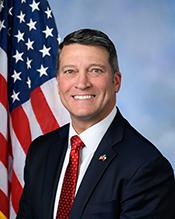NPR and PBS Act
4/7/2025, 2:15 PMCongress
119
Number
HR - 2443
Introduced on
2025-03-27
# Amendments
0
Sponsors

Cosponsors
+5
Related
Status of Legislation
Bill Introduced
Introduced to House
House to Vote
Introduced to Senate
Senate to Vote
Purpose and Summary
Referred to the House Committee on Energy and Commerce.
Bill 119 HR 2443, also known as the "Eliminate Taxpayer Funding for NPR and PBS Act," aims to stop the use of taxpayer money to fund National Public Radio (NPR) and the Public Broadcasting Service (PBS). The bill argues that these broadcasting outlets are partisan in nature and should not receive government funding.
If passed, this legislation would cut off federal funding for NPR and PBS, which currently receive a portion of their budget from the Corporation for Public Broadcasting (CPB), a non-profit organization that distributes government funds to public media outlets. The bill also states that any remaining funds allocated to NPR and PBS must be returned to the Treasury.
Supporters of the bill argue that taxpayer money should not be used to support media outlets that they believe have a bias towards one political party. They believe that NPR and PBS should rely on private donations and sponsorships instead of government funding. Opponents of the bill argue that NPR and PBS provide valuable programming and news coverage that is not influenced by commercial interests. They believe that cutting off federal funding would harm these outlets and limit access to diverse and independent media sources. Overall, Bill 119 HR 2443 is a controversial piece of legislation that raises questions about the role of government funding in supporting public media outlets. It will be interesting to see how this bill progresses through Congress and what impact it may have on NPR and PBS if it is ultimately passed into law.
If passed, this legislation would cut off federal funding for NPR and PBS, which currently receive a portion of their budget from the Corporation for Public Broadcasting (CPB), a non-profit organization that distributes government funds to public media outlets. The bill also states that any remaining funds allocated to NPR and PBS must be returned to the Treasury.
Supporters of the bill argue that taxpayer money should not be used to support media outlets that they believe have a bias towards one political party. They believe that NPR and PBS should rely on private donations and sponsorships instead of government funding. Opponents of the bill argue that NPR and PBS provide valuable programming and news coverage that is not influenced by commercial interests. They believe that cutting off federal funding would harm these outlets and limit access to diverse and independent media sources. Overall, Bill 119 HR 2443 is a controversial piece of legislation that raises questions about the role of government funding in supporting public media outlets. It will be interesting to see how this bill progresses through Congress and what impact it may have on NPR and PBS if it is ultimately passed into law.
Alternative Names
Official Title as IntroducedTo eliminate taxpayer funding for the partisan broadcasting outlets known as National Public Radio and the Public Broadcasting Service, and for other purposes.
Display TitleTo eliminate taxpayer funding for the partisan broadcasting outlets known as National Public Radio and the Public Broadcasting Service, and for other purposes.
Official Title as IntroducedTo eliminate taxpayer funding for the partisan broadcasting outlets known as National Public Radio and the Public Broadcasting Service, and for other purposes.
Policy Areas
Science, Technology, Communications
Comments
Most relevant
Recent Activity
Latest Action3/27/2025
Referred to the House Committee on Energy and Commerce.